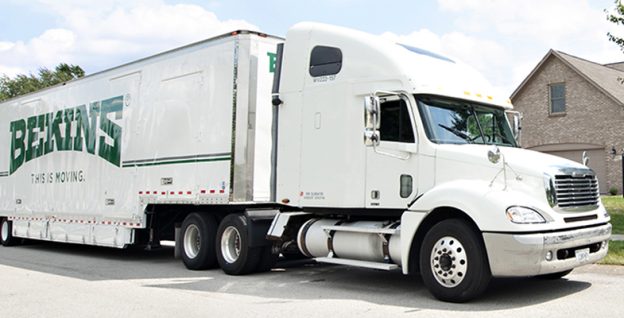Moving homes can be an exciting new chapter, but it’s also one of life’s most demanding tasks. From packing and organizing to lifting and transporting, the process requires time, energy, and precision. That’s why many homeowners in the Gateway City turn to professional residential movers in St. Louis to simplify their relocation experience. Whether you’re moving across town or to a nearby suburb, working with trusted St. Louis moving companies ensures a smooth, efficient, and stress-free transition.
Below, we’ll walk through what to expect when working with residential movers, what services are typically provided, how to prepare your home before moving day, and how professionals handle every aspect of your relocation.
What Services Do Residential Movers in St. Louis Typically Provide?
Professional St. Louis local movers offer a full range of services designed to meet every customer’s unique needs. These include:
- Packing and Unpacking Services: Movers supply boxes, packing tape, bubble wrap, and other materials to securely wrap your belongings. Many companies also offer full-service packing, where trained crews pack up your entire home.
- Loading and Unloading: Movers handle all heavy lifting, carefully loading your furniture and boxes onto the moving truck and unloading them at your new location.
- Furniture Disassembly and Reassembly: Larger items such as beds, tables, and entertainment centers are often disassembled before moving and reassembled at your new home.
- Storage Solutions: If your new place isn’t ready yet or you need extra space, most moving companies in St. Louis offer short- and long-term storage options in secure, climate-controlled facilities.
- Specialty Moving: For valuable or delicate items like pianos, antiques, artwork, or electronics, movers use specialized equipment and techniques to ensure safe transport.
How Do Movers Handle Packing and Unpacking During a Residential Move?
When it comes to packing, professional movers follow a systematic process. They begin by organizing items room by room, using high-quality packing materials to prevent damage. Fragile items are wrapped individually, and boxes are labeled clearly to simplify unpacking.
If you choose full-service packing, movers will take care of every detail. For those who prefer to pack themselves, movers can provide materials and offer advice on best practices. After arriving at your new home, they can also unpack and place items in designated rooms, saving you hours of labor and stress.
What Is the Average Timeline for a Local Residential Move in St. Louis?
The length of a move depends on factors such as the size of your home, the distance between locations, and the number of items being transported. For most local moves within St. Louis, the process can be completed in one day, typically within 4 to 8 hours.
Larger homes or moves involving specialty items may take longer. A reputable mover will provide a detailed timeline during your initial estimate so you’ll know exactly what to expect.
How Do Movers Protect Furniture and Fragile Items During a Move?
One of the top priorities of local movers in St. Louis is the protection of your belongings. Movers use furniture pads, stretch wrap, and moving blankets to prevent scratches, dents, or damage. Fragile items are packed with cushioning materials and carefully secured in the truck to prevent shifting during transport.
Additionally, movers handle items strategically; heavy items are loaded first, while fragile boxes are stacked on top to minimize risk. Professional movers are trained to lift and carry items safely, ensuring both your possessions and your property remain in perfect condition.
Are Storage Options Available During Residential Moves?
Yes, most St. Louis moving companies offer storage solutions for homeowners who need flexibility. If you’re downsizing, remodeling, or waiting for your new home to be ready, storage services are an excellent option.
These facilities are secure, monitored, and climate-controlled, ensuring your belongings stay protected until you’re ready for delivery. Movers can transport your items directly from the truck to storage and later to your new home when you’re ready to move in.
How Should I Prepare My Home Before Movers Arrive?
Preparation is key to ensuring a smooth moving day. Here are a few steps to take before your movers arrive:
- Declutter and Organize: Go through each room and decide what to keep, donate, or discard.
- Label and Separate Items: Mark boxes clearly and separate items you plan to transport yourself (such as important documents or valuables).
- Create Clear Pathways: Ensure hallways, staircases, and doorways are clear to make loading easier and safer.
- Disconnect Appliances: If applicable, unplug and prepare large appliances before movers arrive.
- Communicate Special Instructions: Let your movers know about any fragile, oversized, or high-value items in advance.
What Questions Should I Ask My Residential Movers Before Moving Day?
Before hiring a mover, it’s important to gather key details to avoid misunderstandings. Consider asking:
- Are you licensed and insured?
- What type of estimate do you provide, binding or non-binding?
- Do you charge by the hour or by weight/volume?
- What packing materials do you use for fragile items?
- How do you handle unexpected delays or schedule changes?
- Are there additional fees for stairs, long carries, or oversized items?
These questions will help you choose the right St. Louis local movers for your needs and budget.
How Do Movers Calculate Pricing for Residential Moves?
Moving companies in St. Louis vary in their pricing, but they typically charge by the hour for local residential moves. The total cost depends on factors like:
- The size of your home and amount of belongings
- The number of movers needed
- Travel time and distance between locations
- Additional services such as packing, storage, or specialty moving
Before your move, a professional estimator will conduct an in-home or virtual survey to provide an accurate quote. Transparency and clear communication are essential; a reliable mover will outline all costs upfront so there are no surprises on moving day.
What Can I Expect on Moving Day from a Professional Moving Company?
On moving day, your movers will arrive on time, equipped with the proper tools, materials, and trucks. They’ll perform a quick walk-through of your home, confirm details, and begin loading according to plan.
Throughout the process, they’ll protect your floors, walls, and furniture, ensuring a damage-free move. Once everything is loaded, you’ll receive a final inventory check before departure. At your new home, movers will unload items into their designated rooms and reassemble any furniture that was taken apart.
Most reputable St. Louis moving companies also perform a final inspection to ensure you’re satisfied with their service before completing the move.
How Do I Handle Unexpected Issues or Delays During a Residential Move?
Even with the best planning, unforeseen challenges can arise, from weather delays to last-minute schedule changes. Communication is key. Stay in touch with your moving coordinator and inform them immediately of any changes.
Professional movers like McGuire Moving & Storage are trained to adapt quickly. Whether it’s rescheduling, finding temporary storage, or adjusting routes, they’ll work with you to ensure your move stays on track.
Conclusion
Hiring experienced residential movers in St. Louis can make all the difference in creating a stress-free relocation. From start to finish, professionals handle the heavy lifting, packing, transportation, and logistics, so you can focus on settling into your new home with confidence.
Ready to make your next move easy and hassle-free?
Trust McGuire Moving & Storage, one of the most dependable moving companies in St. Louis, to handle every detail of your residential move. Whether you’re relocating across town or to a nearby suburb, our experienced local movers in St. Louis deliver safe, efficient, and affordable moving services tailored to your needs.
Contact us today to request a free moving estimate and discover why McGuire is among the top-rated St. Louis local movers trusted by families for generations.
Visit McGuire Moving & Storage or call us now to start your move with confidence!


 Call McGuire -
Call McGuire - 






















